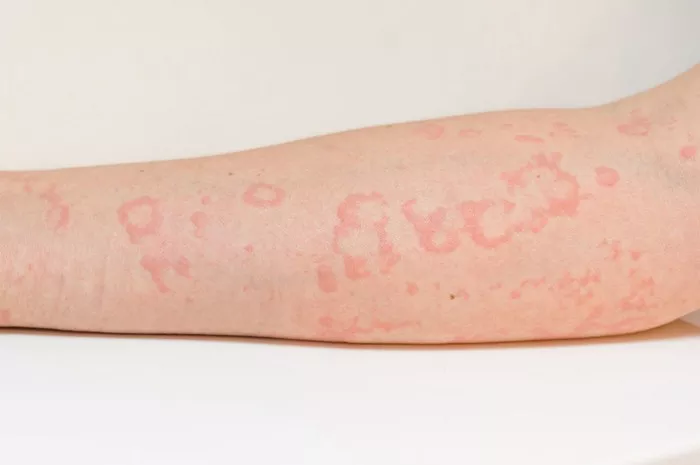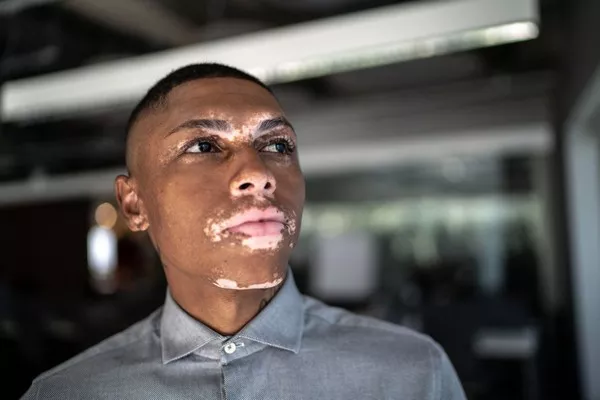Bringing new life into the world is undoubtedly one of the most joyous experiences in a woman’s life. However, along with the joys of motherhood, there can also be unexpected challenges. One such challenge that some women may face is postpartum hives. While not widely discussed, postpartum hives can be distressing for new mothers. Understanding this condition is essential for prompt recognition and appropriate management.
What are Postpartum Hives?
Postpartum hives, also known as postpartum urticaria, are a skin condition characterized by the sudden appearance of itchy, raised welts on the skin. These welts, also known as wheals or hives, can vary in size and shape and often appear suddenly. While postpartum hives can occur at any time after childbirth, they typically manifest within the first few weeks following delivery.
Causes of Postpartum Hives
The exact cause of postpartum hives is not fully understood. However, several factors may contribute to their development:
1. Hormonal Changes: Pregnancy and childbirth bring about significant hormonal fluctuations in a woman’s body. The sudden drop in hormone levels after delivery, particularly estrogen, may trigger an immune response leading to the development of hives.
2. Stress: The physical and emotional stress associated with childbirth and caring for a newborn can weaken the immune system, making women more susceptible to hives.
3. Allergic Reactions: Some women may experience postpartum hives due to allergic reactions to certain foods, medications, or environmental factors. It is essential to identify and avoid potential triggers.
4. Underlying Medical Conditions: In some cases, postpartum hives may be linked to underlying medical conditions such as autoimmune disorders or thyroid dysfunction. Consulting a healthcare provider is crucial for proper evaluation and management.
Symptoms of Postpartum Hives
Postpartum hives typically present as raised, red or pink welts on the skin that are often accompanied by itching. These welts may vary in size and shape and can appear anywhere on the body. In severe cases, hives may be accompanied by other symptoms such as swelling of the face, lips, or throat, difficulty breathing, and dizziness. It is essential to seek immediate medical attention if these symptoms occur, as they may indicate a severe allergic reaction known as anaphylaxis.
SEE ALSO: What Is Exercise-Induced Urticaria
Diagnosis and Treatment
Diagnosing postpartum hives often involves a thorough medical history, physical examination, and sometimes, allergy testing. Once diagnosed, the primary goal of treatment is to alleviate symptoms and prevent recurrence. Treatment options may include:
1. Antihistamines: Oral antihistamines are commonly prescribed to relieve itching and reduce the frequency and severity of hives. Non-sedating antihistamines are often preferred, especially for breastfeeding mothers, to minimize drowsiness in newborns.
2. Topical Treatments: Calamine lotion or corticosteroid creams may be recommended to soothe itching and reduce inflammation associated with hives.
3. Avoidance of Triggers: Identifying and avoiding potential triggers such as certain foods, medications, or environmental factors can help prevent the recurrence of hives.
4. Stress Management: Practicing relaxation techniques such as deep breathing, meditation, or yoga can help reduce stress levels, which may contribute to the development of hives.
5. Medical Evaluation: In cases where hives are severe or persistent, further evaluation by a healthcare provider may be necessary to rule out underlying medical conditions or complications.
Managing Postpartum Hives
In addition to medical treatment, several self-care measures can help manage postpartum hives and promote overall well-being:
1. Maintain a Healthy Lifestyle: Eating a balanced diet, staying hydrated, and getting an adequate amount of rest can help support the body’s immune system and reduce the risk of hives.
2. Avoid Triggers: Be mindful of potential triggers such as certain foods, medications, or environmental factors, and take steps to avoid them whenever possible.
3. Stay Connected: Reach out to family, friends, or support groups for emotional support and practical assistance in caring for yourself and your newborn.
4. Follow-up Care: Attend follow-up appointments with your healthcare provider to monitor your progress and adjust treatment as needed.
Conclusion
Postpartum hives can be a challenging and distressing condition for new mothers. While the exact cause may not always be clear, understanding the potential triggers and treatment options is essential for effective management. By working closely with healthcare providers and implementing self-care measures, women can effectively manage postpartum hives and focus on the joys of motherhood.
Related Topics:

























